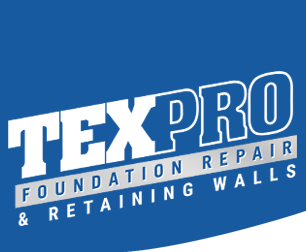A homeowners insurance comes to play when there is some sort of damage – be it minor or major – in your home that requires repairs. But something you should keep in mind is that a homeowners insurance does not cover every single form of damage. Whether or not your insurance company has you covered for your foundation repair depends on the cause of the foundation damage. In fact, if you go through the insurance policy of your homeowners insurance you may notice that damages made due to certain types of causes are specifically said to not be considered for the insurance.
For instance, if your foundation damage was caused due to natural settling, cracking, shrinking, bulging, or expansion of the foundation, earthquakes or floods, pressure from tree roots, faulty construction, etc. your homeowners insurance might, unfortunately, not have you covered.
The list mentioned above is not the same for all insurance providers. Some insurers may provide claims for foundation damage caused by floods while not showing the same courtesy for damages caused by earthquakes.
When homeowners insurance DOES cover foundation repair
If your foundation damage was caused due to lightning or fire, windstorms, air-crafts, explosions, riots or civil disturbances, vehicles, vandalism, falling objects, volcanic eruptions, collapse weight of snow, ice or sleet, water damage from plumbing, heating, or A.C. overflow, you may be assured that your homeowners insurance will cover the cost of repairs for you.
Not every insurance company will have the same coverage as mentioned above. Usually a homeowners insurance covers all aspects of damages unless they have specifically mentioned not to do so. That’s why it’s important to review your homeowners insurance policy so that you can know your options for sure rather than relying on what you’ve heard.
Reviewing if your homeowners insurance policy covers foundation repair
A homeowners insurance is a means of protection and reassurance to your home. It may repair your home, repair or replace personal belongings and even cover personal liability issues.
But most often people don’t know exactly what their homeowners insurance accounts for. To make things worse, they tend to assume that the homeowners insurance covers all damages that may occur even though it may be explicitly mentioned that there are certain aspects that will not be covered. It’s a common case of ignorance that should be rectified, because once they’ve faced some kind of peril with relation to their homes they may walk up to their insurance company and request for a claim for the cost of repair only to be turned down.
Of course in many cases you may get your compensation without much of a hassle, but in some you may be rejected. As mentioned earlier, it all depends on the insurance policy of the company.
If your homeowners insurance does not cover certain risks
If your homeowners insurance does not cover certain risks that your home may be more prone to then you can make an extension to it and get coverage for those factors as well. Because, in the end, what use would it be to have your home insured against risks that have a very slim chance of happening while not preparing against risks that are more likely to bother your home.
Also, when you face an issue where your homeowners insurance does not have you covered, your best option would be to find a way to show that the cause of the foundation damage was indeed not due to any of the above mentioned reasons where the insurance policy does not provide coverage, but due to one of the reasons that it does provide coverage. It may be a bit of a tricky task and you will have to get a thorough inspection done by a specialist in order to get a second opinion on such a situation. This is because there may be instances where the insurer might have claimed that the cause for the foundation damage was a flood – which is listed as a cause that the insurance policy does not provide coverage for – but in reality the root cause might have been a damaged pipe leaking water.
Therefore, in order to get the optimum use of your homeowners insurance and to make sure that your home isn’t under-insured – which seems to be the case with many homes – it’s important to know the ground that your insurance policy covers.


